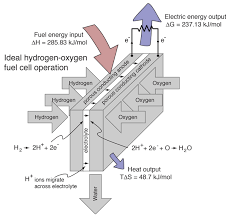Alternative energy sources are essential especially in times like this with high energy costs. Not only that, if you are a lover of clean energy, then you would be looking to invest in alt energy for home and workplace. While there are options like solar, inverter generators, and wind energy, batteries are also a good rechargeable source of energy to go with. Though most of these energy sources serve high value but are mostly used in homes, workplaces, and small industries.
Hydrogen batteries, on the other hand, are multi-purpose, as they have a wide range of applications aside from powering buildings. There are many applications for both hydrogen and fuel cells. These include portable electronic gadgets, backup power systems, power structures, vehicles, and trucks. Hydrogen fuel cells now cost more per unit of electricity than other energy sources, such as solar panels. As technology develops, this is changing because there are certain affordable H-Batteries that just require a one-time investment and are long-lasting.
How does a Hydrogen Fuel Cell work?

They do work like normal lead batteries, but they do not need to be recharged like lead cells. Operating at higher efficiency than a combustion engine they convert chemical energy in the fuel to electrical energy. The fuel cell has two plates (Anode and Cathode) which are separated by an electrode called an Electrolyte membrane. Hydrogen is passed to the anode and oxygen through the cathode. The H2 molecules are split into electrons and protons when they pass through the plate, but the electrons can’t pass through the electrode. The electrons are now forced to pass through a different route, which will then be tapped to generate electricity. Unlike combustion engines whose end product is carbon-emitting, the hydrogen fuel cell emits unharmful H2O as steam.
Hydrogen Batteries Applications
H-cell batteries have the potential of being applicable to absolutely anything. They are currently to be applied in cars, small appliance modes, power systems, electronic systems, and battery power for homes.
For Homes
A boiler can be used to heat and heat water for homes using hydrogen, a low-carbon substitute for natural gas. Almost everything that requires electrical power can employ fuel cells. Compared to combustion engines, they are more effective, more reliable, and emit fewer pollutants. Hydrogen fuel cells are viewed as relatively unrealistic in the west because they may primarily be used to power automobiles. In actuality, hydrogen fuel cell technology is a method of converting hydrogen into heat and power and is even more appropriate for the home than a car.
For Vehicles

Hydrogen fuels fuel cell electric vehicles (FCEVs). They emit just warm air and water vapor, which is more efficient than vehicles with conventional internal combustion engines and no hazardous pollutants. Due to the high energy density of hydrogen generation and the lack of government financing and support, the vast majority of automobile manufacturers are now avoiding it, which is preventing the hydrogen revolution from progressing further. In 2021, hydrogen retail prices ranged from $8.50/kg to $10.80/kg. Which is higher than gasoline prices for hybrid or traditional gasoline vehicles, respectively, matching the same fuel cost per mile.
